Red Standard Rose Summer | bidding for the Jade Manor in 2018 Rose Summer Geisah, the Discovery Story of Rose Summer
For professional baristas, please follow the coffee workshop (Wechat official account cafe_style)
[Jadeite Manor Red Standard Rose Summer]
Country: Panama
Producing area: Bouquete
Manor: Jade Manor
Altitude: 1700 + m
Treatment: insolation
Variety: rose summer seed Geisha
Production season: 2018
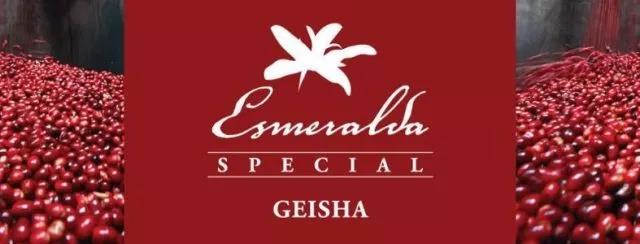
(i) Introduction to production areas
Emerald Manor Bouquete

Qianjie Coffee tells you what is Red Rose Summer?
Top-level-Red bid [bidding lot]
⇒ planted 1600-1800 meters above sea level
The score of ⇒ Cup test is above 90 points.
⇒ high quality rosette beans
⇒ receives rose summer beans from the highest part of the Boquete mountains, with special, bright floral and citrus aromas.
Coffee of this grade ⇒ will be made into sun or water washed raw beans after the meeting
⇒ can only be purchased through the annual global auction.
The birthplace of the famous Rose Summer (geisha / Geisha) is the emerald estate in the small mountain town of Bouquete in the eastern foothills.
Bouquete, with good mountains and good water, has always been a sacred place for elites in Europe and the United States to provide for the aged. There are 20, 000 people in the town, and there are more than 2, 000 high-level immigrants. The owners of coffee farms here are fluent in English and European, have a world outlook, and have a doctorate or master's degree, ranking first among coffee-producing countries.
As early as 1904, at the beginning of the construction of the Panama Canal, a large number of European engineers and senior managers were hired to work in Panama City, which is very hot in the east. After the completion of the Panama Canal in 1917, this group of senior intellectuals, especially Nordic, fell in love with Bouquete of Panama, where the climate is cool and spring all year round, and many people stay here, buy farms, retire and enjoy the fragrant living conditions of Danxia.
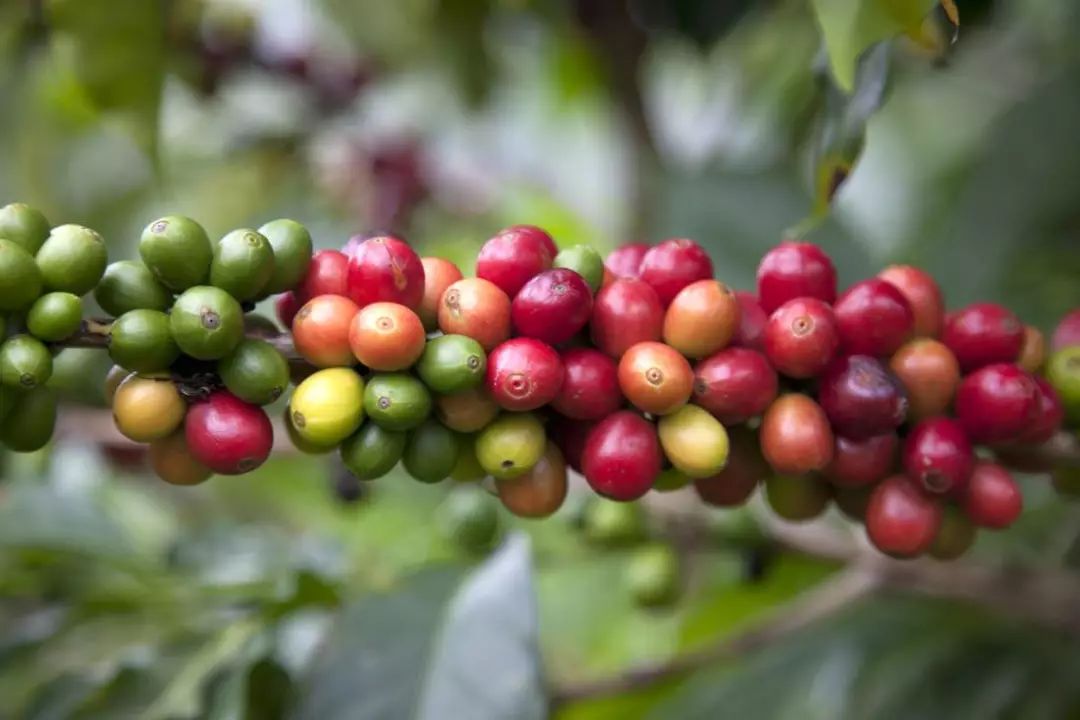
The Discovery Story of Geisha
Price introduced Caturra and Catuai varieties in 1980 and set up a washing plant in 1994. In 1996, Price heard that the coffee in the neighboring Harami Manor was good, with a strong citrus flavor, so he bought Harami Coffee Garden and merged it into Emerald Manor. The Peterson family initially mixed the coffee from the two estates and sold it, but always felt that there was a faint orange fragrance and Chinese rhyme, which was different from the plum fruit flavor of Central American coffee.
One day in 2002, Plath's son Daniel, blessed with the idea that the spectrum should come from a single variety in one growing area, cup-tested all the varieties in different elevation growing areas on the estate.
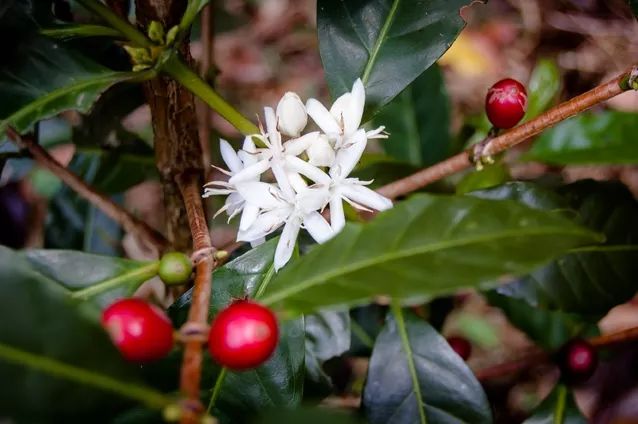
The cup test results show that the fascinating floral honey flavor and citrus rhyme actually come from the windbreak forest on the border of Harami. The altitude in this area is the highest, about 1500 to 2000 meters. The coffee tree is thin and tall with sparse leaves and not handsome. The vertical spacing of each branch is larger than that of ordinary coffee trees, and the distance between each bud of each branch is as long as 7.26 centimeters. This means that the same branch unit, the area available for flowering and fruiting is not dense enough, belongs to low-yield varieties, and has low economic value, so it may be demoted by the former owner to the most remote and windy area, which serves as a windbreak, shielding other high-yielding varieties with short and close knots from strong winds.
The two men concluded that the unknown coffee trees in the windbreak forest have unique genes and must be tempered by cold winds and mountain air at a height of more than 1500 meters in order to develop a startling flavor spectrum.
Ordinary coffee trees cannot survive in the Harami windbreak forest because the wind is too strong and the temperature is too low, but these tall and thin coffee trees are complacent, and the coffee fruit is fatter than ordinary varieties, and it is not easy to be blown off. although the country is rare, but the smell of orange honey is fascinating, what kind of variety is this?
After consulting many parties, it is known that this variety is called Rosa (geisha / Geisha). It was born in Italy in 1963 and worked in the Ministry of Agriculture. Bach was introduced, but it was abandoned because it was planted in a sea area of 1200 meters, with low yield, small beans and poor flavor.
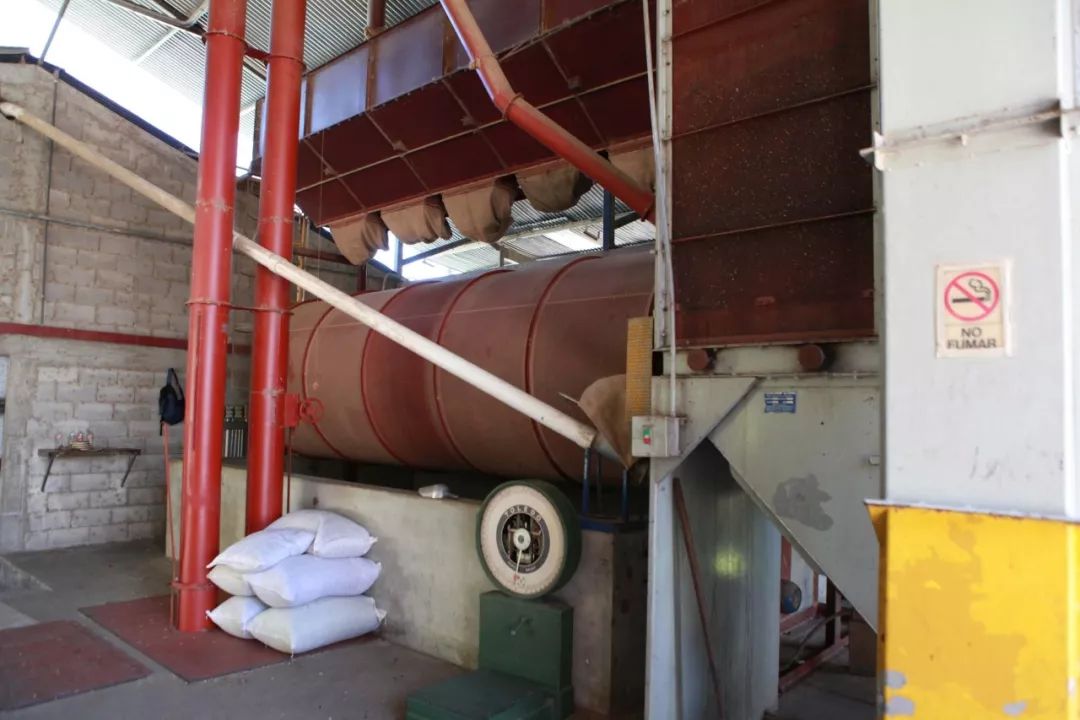
Large processing equipment
In 2004, intellectual green bean purchasing expert Jeff, served as BOP reviewer. He recalls that 25 Panamanian beans entered the finals, but one of them puzzled the judges. Her citrus, lime, sugar cane, jasmine smells filled the room, and when inhaled, it was as beautiful as flowers blooming and fireworks in your mouth. And Ethiopia's Yejia Shefei also can not have such a strong orange honey flavor, champion beans have been set. The owner Price explained to everyone that this bean was a Geisha variety, and Geisha became famous from then on.

Coffee trees under shade
It can be said that a hundred years ago, retired engineers in Europe were the pioneers of today's Bouquete livestock and coffee cultivation. The advanced washing plant and farming hardware facilities here are the masterpieces of engineers of that year.
La Esmeralda Estate
Emerald Estate is located in the corner of Baru volcano, so the coffee beans produced in this area are often named after Baru Mountain before it is famous. The surrounding area of Bouquete is beautiful, with many leisure hotels, villas, holiday estates, and even along the important Rio Caldera. La Esmeralda grows coffee at Jaramillo on the right side of the river, and then Canas Verdes on the left side of the river. Thanks to Rudolph Peterson's decision to buy this property.
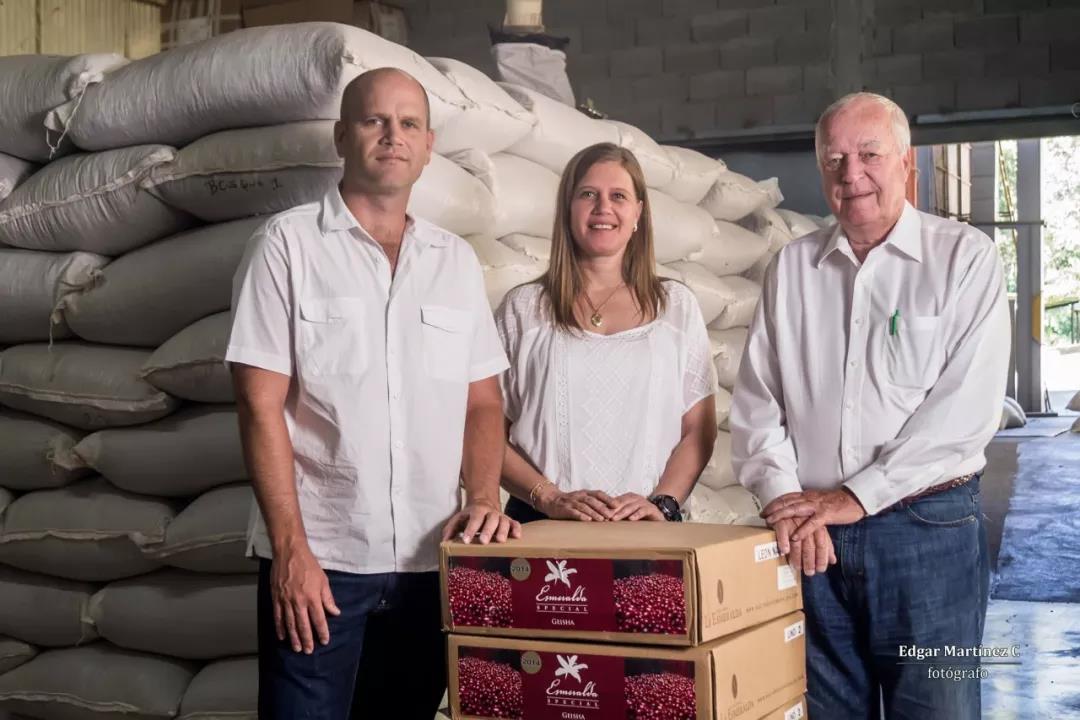
Peterson family
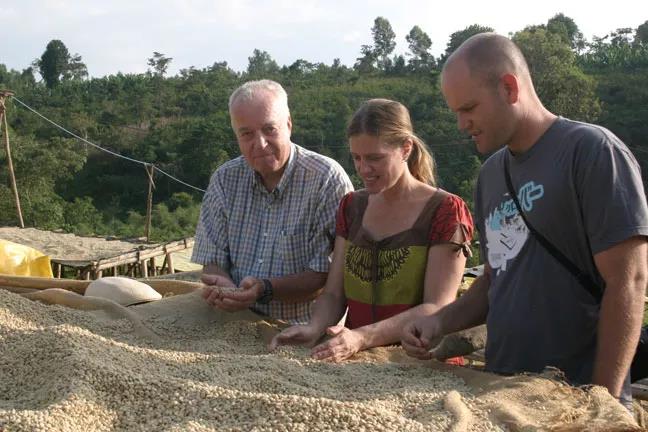
Rudolph A. Peterson, the first generation owner of Jade Manor.
In 1964 Rudolph, a Swedish-American financier. Rudolph A.Peterson retired, moved to Panama and bought Bouquete's emerald estate, which is dominated by dairy. A former president of Bank of America and a big shot in financial circles at the time, Rudolph bought Hacienda La Esmeralda only for vacation and later retirement, and it should not have been expected that the estate would become world-famous and even become a representative of the Panamanian boutique coffee estate. In 1973, his son Price. Peterson earned a doctorate in neurochemistry in the United States, but returned to Bouquete to help his father run the farm. After taking over, Price divides the market into three major brands to sell according to altitude and micro-climate, cup performance and planting varieties (Esmeralda Special,Diamond Mountain grows,Palmyra). Since 2012, Rosa (Geisha / Geisha) has become one of the four major brands.
[Emerald Manor] consists of four farms: Ca ñ as Verdes, El Velo, Jaramillo and Palmira. All coffee beans are sent to four farms for post-processing. The first farm bought by the Peterson family, the owner, was Palmira.
The Jadeite Special selection (Esmeralda Special), that is, the independent bidding held by the Jadeite Manor itself, is entirely based on the Rose Summer (Geisha / Geisha), each block is subdivided into small batches according to the name of the production block. only the Rose Summer (Geisha / Geisha) lots that the manor takes out for independent bidding can use the Jadeite Special name. Since 2013, there have been nine batches of the Jadeite Special selection.

Rosa participated in the auction in 2004, and the auction war has pushed Rosa to an astonishing price. Looking back at the 2017 Panamanian boutique coffee auction, a batch of sun roses from the Emerald Manor sold for a whopping $601 / lb, almost double the previous auction. In other words, the price of a kilogram of raw beans is as high as 8900 yuan.
This year, the winner of the 2018 Panamanian coffee competition is also Jade Manor's Geisha, which costs $340 per pound, which was won by HARU International Corp.
The bidding group of Rose Xia:
Yeast treatment (ES-Y): a total of four LOT batches, nine boxes of beans
Sun treatment (ES-N): a total of nine natural sun batches, 35 boxes of beans
Washing treatment (ES-W): a total of two traditional washing batches, six cartons of beans
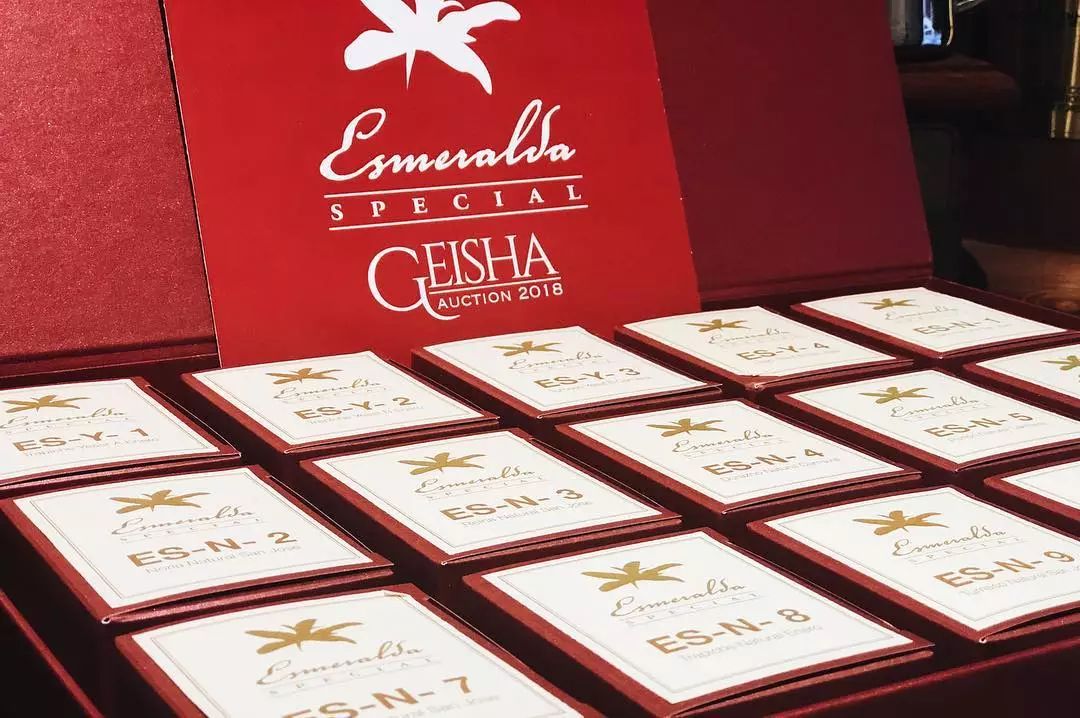
The auction price of the champion is US $340 per pound, which belongs to the yeast group Lot ES-Y-1.
Tanning group, up to 109USD / lb, ES-N-9-1
Water washing group, up to 105USD / lb, ES-W-1-5
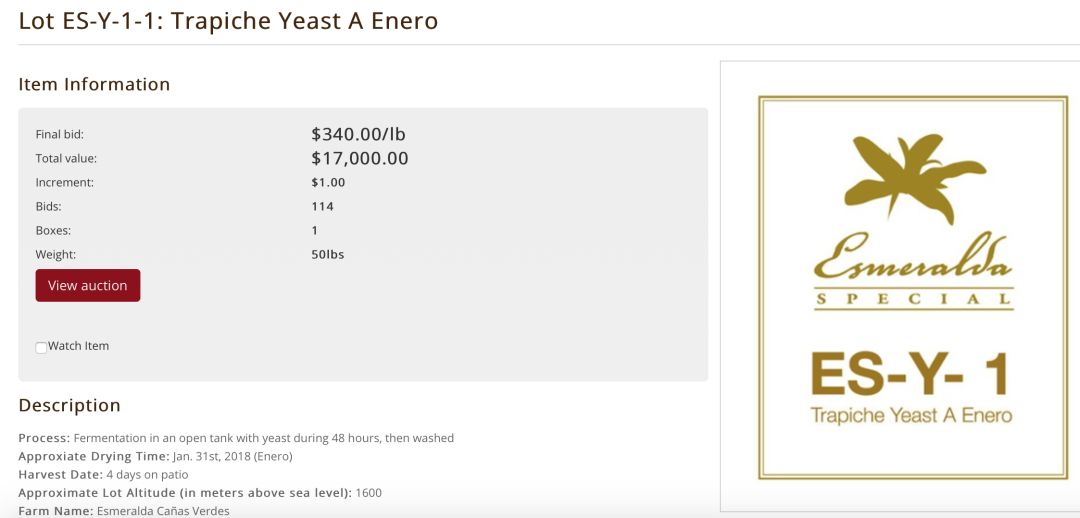
Lot ES-Y-1
Harvest time: January 31, 2018
Processing method: add yeast to ferment for 48 hours, wash with water, and then dry in scaffolding for 4 days.
Altitude: 1600 m
Area: Cañas Verdes, Palmira
Estate: Cañas Verdes
Bean Seed: Green Tip Geisha
Rose summer varieties: Green Tip rose summer varieties and Bronze Tip rose summer varieties, Green Tip rose summer is characterized by floral fragrance, intense acidity, sweetness. On the contrary, copper leaf rose summer is mainly weight and sweet, sour is not obvious.
The Veil Farm (El Velo)

Veil Farm (El Velo), acquired by Jade Manor in 2012, is the latest farm in the estate. Veil farms often process micro-batches of coffee beans and sell them in small quantities through direct trade.
For example, the coffee fruit harvested by Prueba4 comes from the Bolton plot of the Veil Farm. This batch of coffee beans are soaked in titanium dioxide. First peel the ripe red coffee fruit, then place the peeled coffee fruit in a closed jar filled with titanium dioxide for 62 hours, then the coffee fruit will be placed on the concrete terrace to dry for 32 hours (there is still pectin residue, so it is honey treatment). The temperature of the terrace is controlled between 17 °C and 24 °C. Pruba 4 (Prueba 4) belongs to a special innovative batch of special collection plots of Jadeite Manor.
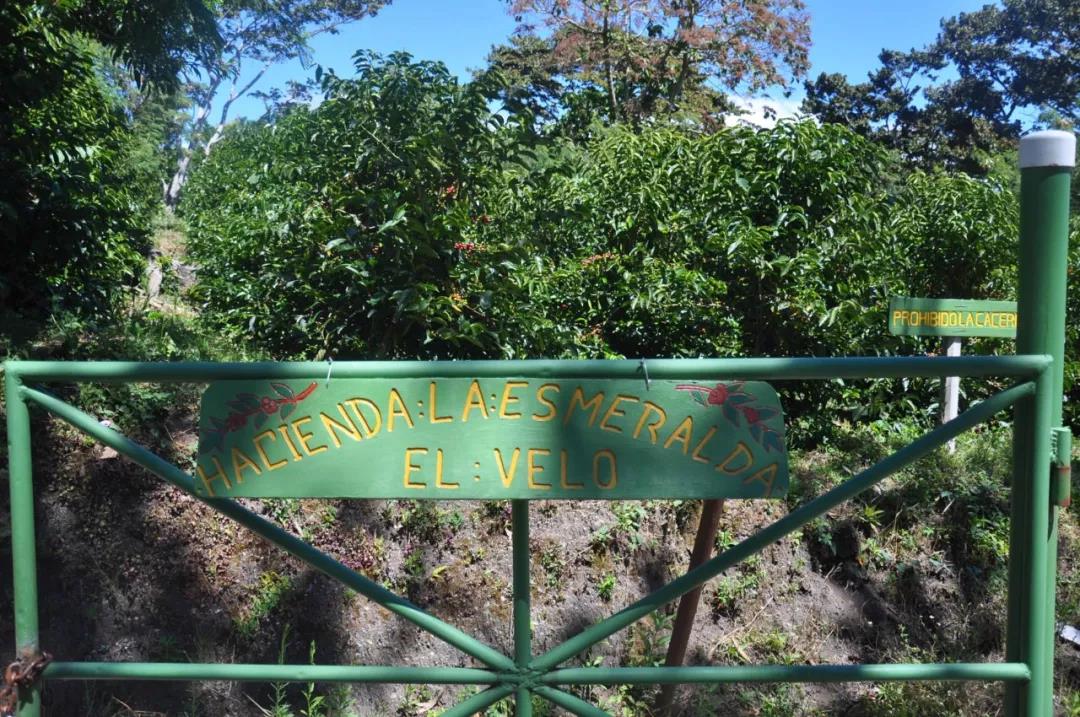
(2) introduction to the treatment method
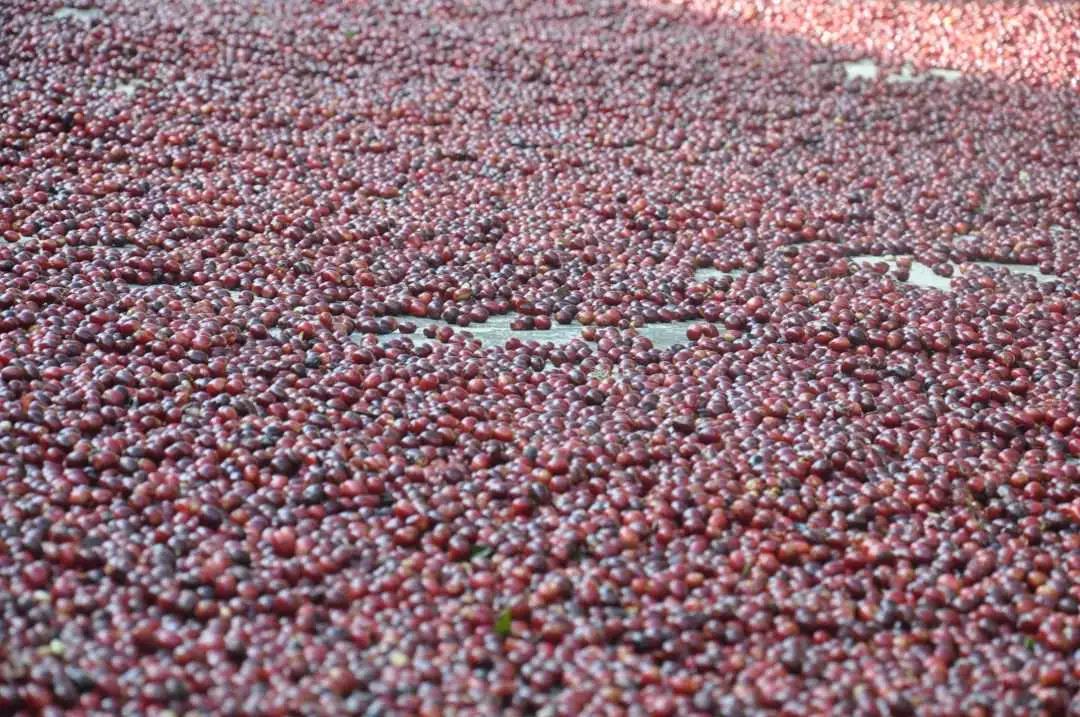
Tanning is the oldest and most convenient way to treat raw beans.
Sift out the floating beans
Pour the harvested coffee fruit into a large trough, and the ripe and full fruit will sink to the bottom of the water; the underdeveloped or overripe fruit will surface, and these floating beans need to be removed.
Two-day drying
Next, the whole coffee fruit with meat belt is put on the bean drying farm to dry, and the water content is about 12%. It takes about two to four weeks, depending on the climate of the place of origin.
three. Shelling
The dried fruit will be naturally dried and the hard peel, pulp and sheepskin will be removed by a shelling machine, and the raw beans will appear.
The advantages of solarization
1. Simple, low processing cost.
two。 The raw bean is naturally dried in the pulp and absorbs the essence of the fruit, so the fruit is rich, sweet and mellow in thickness.
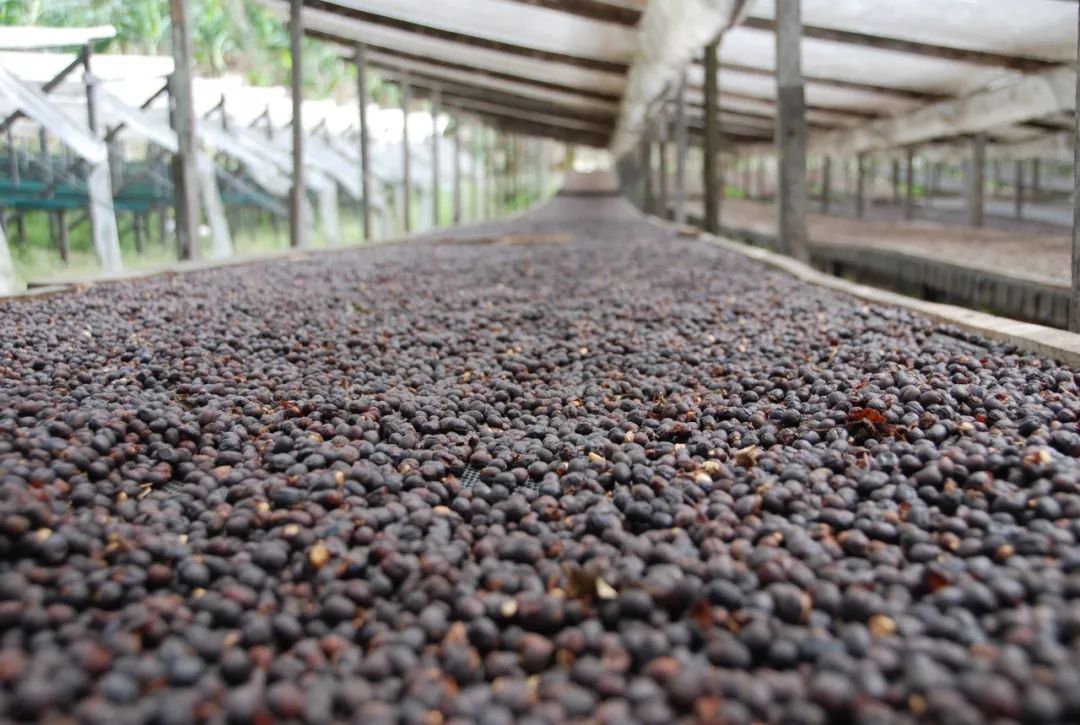
(iii) analysis of green beans of front street coffee
Rose summer coffee green beans have a very beautiful blue-green, jade-like warm texture, smell fresh grass, peach flavor, berry flavor and most coffee beans do not have the unique milk sweet flavor, it seems that aroma and taste this kind of thing is very need to cooperate association, but the light tea gas is we can obviously feel.
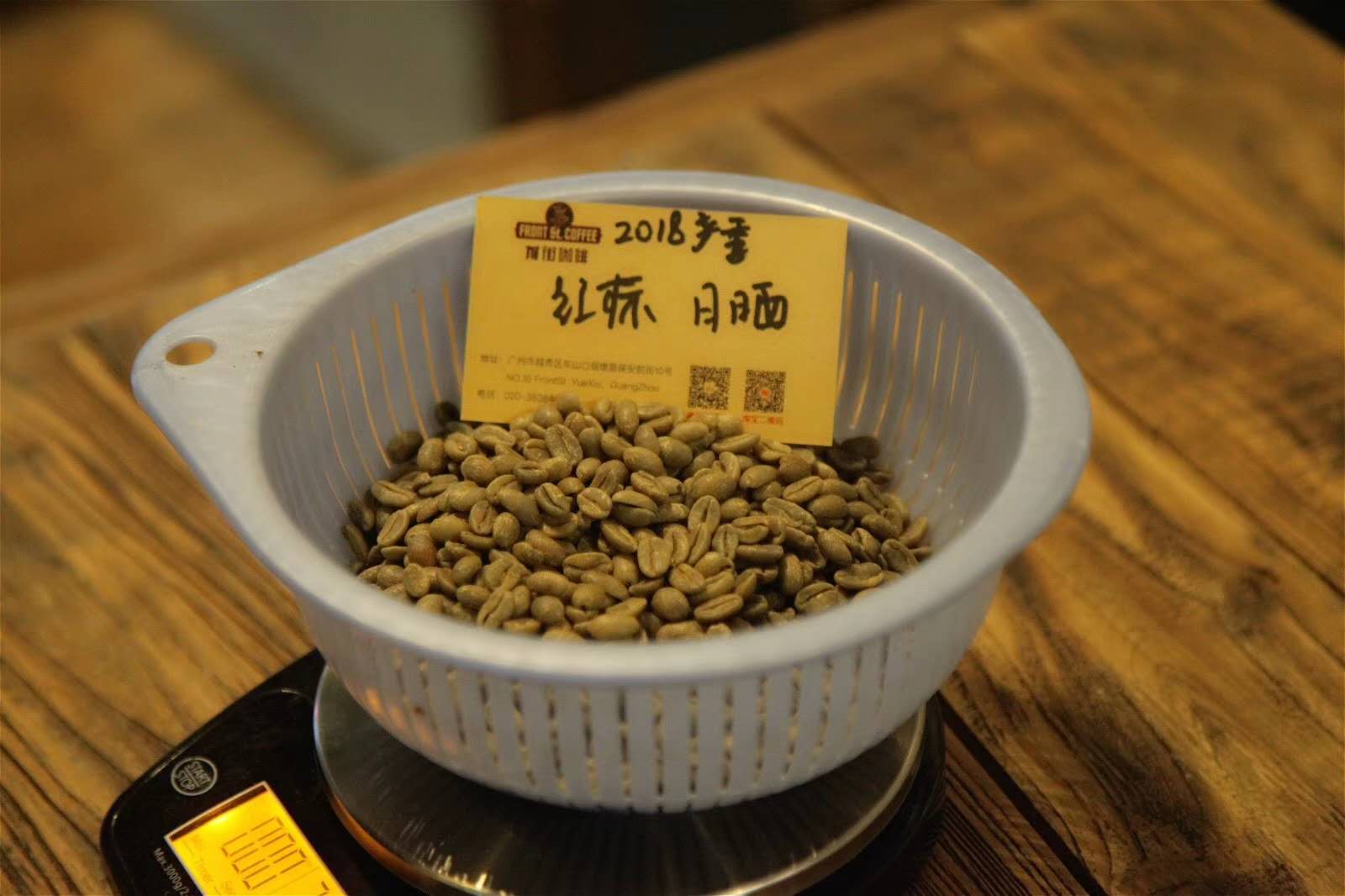
(4) Analysis of coffee roasting in Qianjie
Qianjie coffee gets a rose summer, how to bake it?
If you fully show the personality of Rose Xia, you must make some efforts on baking. Rose summer is generally planted at a high altitude of more than 1500 meters. What we get is 1700 meters of high-hardness and high-density beans, which are full in shape, medium grain size, thick and long, and pointed at both ends.

In order to highlight the characteristics and aroma of this bean, use shallow baking, so that the baking degree can show the characteristics of the bean itself, and if it is too deep, it will lose the aroma of flowers and fruit acid. of course, this should be adjusted according to the characteristics of coffee beans and the roaster's understanding of the beans themselves.
Qianjie coffee personal experience, in the baking process to pay attention to, rose summer baking curve should not be too long, otherwise the flavor will be rigid. After an explosion, the temperature rise should not be too high, the two ends of Rose summer are sharp, it is easy to have black focus, the temperature rise below 6 degrees will be better, shallow baking will reveal the aroma of tea rose.
Qianjie coffee roaster Yang's 600g semi-direct fire
When the furnace temperature reaches 170 degrees Celsius, the firepower is adjusted to 140 degrees after the throttle is opened for 3, 30 seconds, the throttle remains unchanged, the temperature of the furnace is adjusted at 140 degrees Celsius, the fire power is adjusted to yellow, the smell of grass disappears completely, the dehydration is completed, the firepower is adjusted to 100 degrees, and the throttle is adjusted to 4.
No. 7 & # 39 × 40 ", ugly wrinkles and black markings appear on the bean surface, and the smell of baked bread obviously turns into coffee, which can be defined as a prelude to an explosion. At this time, listen clearly to the sound of a burst point, start to explode to 8 degrees 39 × 12", adjust the firepower to 80 degrees, adjust the throttle to 4 (the firepower should be very careful, not so small as to be free of bursting sound), and develop 1 percent 39 percent 30 "after an explosion. 189 degrees into the pot.
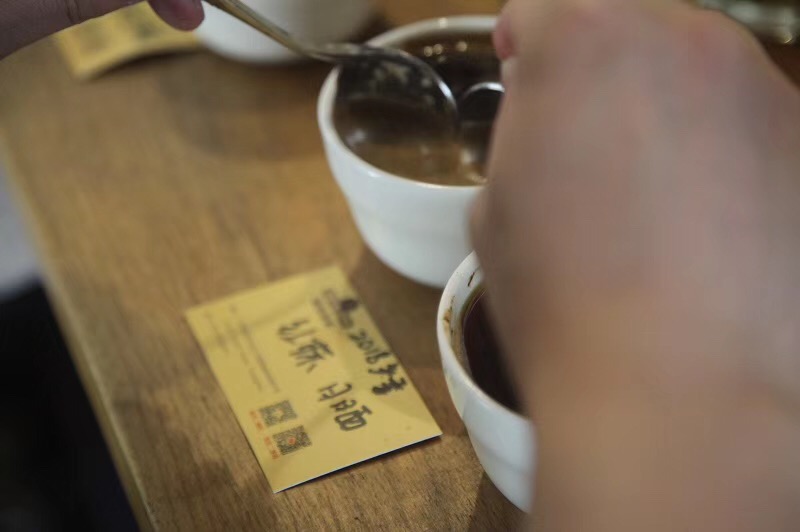
Qianjie coffee cup test results show that the entrance acidity is delicate and soft, and soon a sense of sweetness appears on the tongue and lasts for a long time. The taste is clean and bright, like black tea. There are roses, honeysuckle, sweet potato, grapefruit, lemon, black tea, sugar aromas, clear layers, long finish.
(5) suggestions for cooking
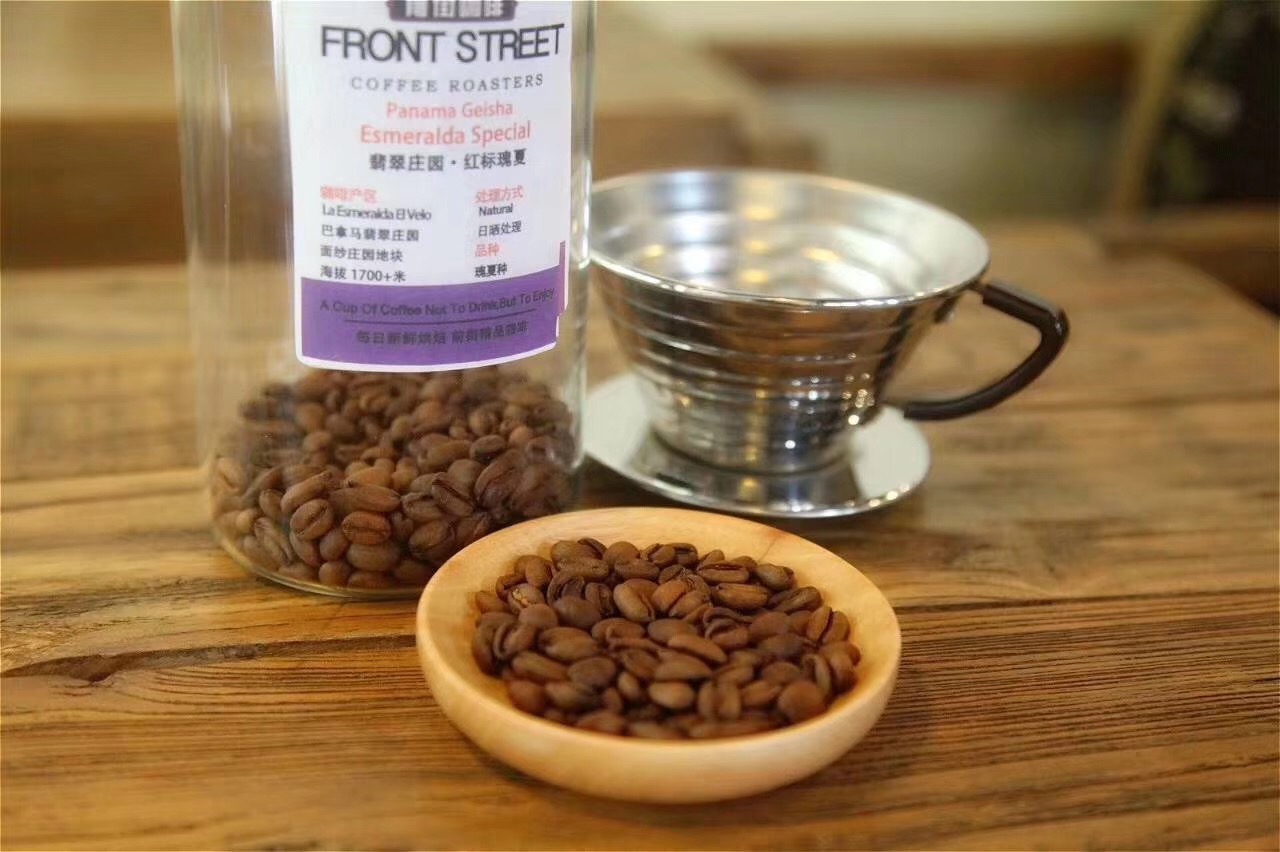
Qianjie coffee is recommended for brewing by hand.
Degree of grinding: 3.5 (Fuji R440, Japan)
Water temperature: 91 ~ 92 °C

Cake filter cup, 15g powder, water temperature 91 degrees, grinding 3.5.The ratio of water to powder is close to 1:15
35 grams of water is steamed for 30s
Segment: water injection to 100ml cut off, slow water injection to 225ml
That is, 30-100-95

So everyone thinks that rose summer is expensive.
This year's red bid rose summer is normal. The auction price of jadeite red bid Geisha in 2018 is US $340 per pound, while the other bids are between US $80 and US $100 per pound. It can be recalled that the results of the annual 2018 Red Rose Summer auction have been released! First place: $340 / lb! The output of rose summer is very low, which is just an excuse to sell expensive. What is really fascinating is the unique and attractive coffee flavor of rose summer, which is the most important reason why rose summer is extremely expensive. In Guangzhou Qianjie Cafe, this year we got 3kg red standard sun roses summer and yeast treated red standard rose summer, a cup of red standard sun roses summer 75 yuan per cup, which is a relatively friendly price, the quantity is limited, .

Red label purchase link: https://item.taobao.com/item.htm?spm=a1z10.5-c-s.w4002-15673140460.29.66586d59KPZq38&id=541755048209
Important Notice :
前街咖啡 FrontStreet Coffee has moved to new addredd:
FrontStreet Coffee Address: 315,Donghua East Road,GuangZhou
Tel:020 38364473
- Prev
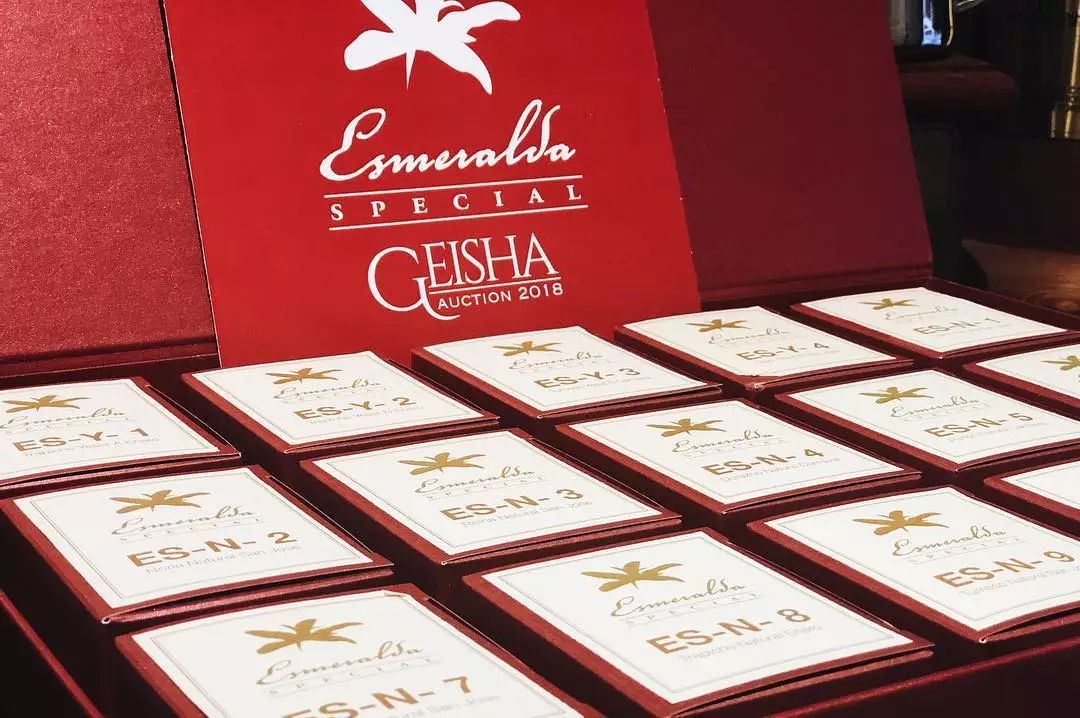
Jadeite Manor Red Standard Rose Summer | bidding for Rose Summer in 2018, a rare method of yeast anaerobic fermentation
[jadeite Manor Red Standard Rose Summer] country: Panama production area: Bouquete Manor: jadeite Manor Kanas plot elevation: 1800 + treatment: yeast anaerobic fermentation Variety: rose Xia seed (1) introduction of Jadeite Manor Bouquete (geisha / Geisha) the birthplace of the famous Rose Summer (geisha / Geisha) is in the eastern foothills of the small mountain town of Poket (geisha / Geisha).
- Next
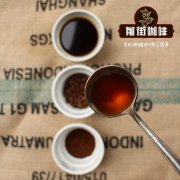
What is the classification and naming of coffee beans? What is the name of the coffee bean?
Professional coffee knowledge exchange more coffee bean information please follow the coffee workshop (Wechat official account cafe_style) coffee bean grade classification and naming method? What is the name of the coffee bean? The name and specification indicate the country name and place name: indicate the country and region of origin of coffee. For example, it is marked Ethiopia. Hara, on the other hand, said it was made in Ethiopia.
Related
- Detailed explanation of Jadeite planting Land in Panamanian Jadeite Manor introduction to the grading system of Jadeite competitive bidding, Red bid, Green bid and Rose Summer
- Story of Coffee planting in Brenka region of Costa Rica Stonehenge Manor anaerobic heavy honey treatment of flavor mouth
- What's on the barrel of Blue Mountain Coffee beans?
- Can American coffee also pull flowers? How to use hot American style to pull out a good-looking pattern?
- Can you make a cold extract with coffee beans? What is the right proportion for cold-extracted coffee formula?
- Indonesian PWN Gold Mandrine Coffee Origin Features Flavor How to Chong? Mandolin coffee is American.
- A brief introduction to the flavor characteristics of Brazilian yellow bourbon coffee beans
- What is the effect of different water quality on the flavor of cold-extracted coffee? What kind of water is best for brewing coffee?
- Why do you think of Rose Summer whenever you mention Panamanian coffee?
- Introduction to the characteristics of authentic blue mountain coffee bean producing areas? What is the CIB Coffee Authority in Jamaica?

